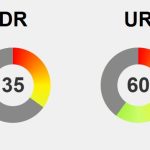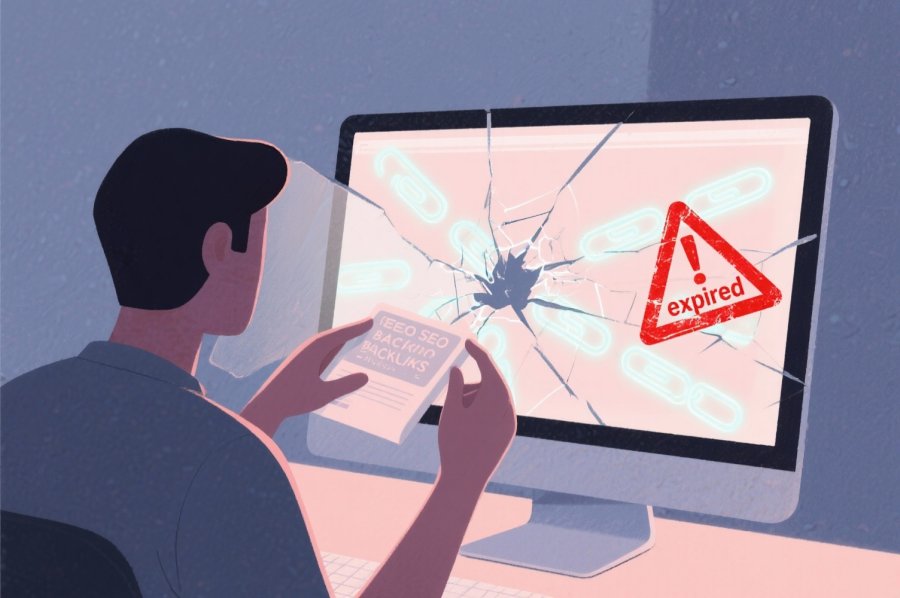Despite Kazakhstan’s public promises of reform and modernization, its human rights record tells a different story—one of pervasive repression and systemic abuse. The government maintains tight control through political imprisonment, media censorship, and restrictions on civil society, all aimed at silencing dissent and consolidating power. While official rhetoric champions democratization, behind the scenes, opposition figures, journalists, and activists face harassment, sham trials, and arbitrary detention. Digital censorship and legislation further stifle independent voices and limit public debate. This paradox—promising progress but enforcing repression—raises a crucial question: can genuine change occur while these core barriers remain unaddressed? The cycle of repression is deeply embedded in Kazakhstan’s political and legal systems, making superficial reforms ineffective. Breaking this cycle demands targeted international pressure, legal safeguards, and resilient activism to dismantle the tools of suppression and pave the way for true democratic progress.
Unmasking Kazakhstan’s Reform Illusions: The Power of Paradox and Suppression
Kazakhstan’s political landscape is marked by a striking disconnect between official rhetoric and on-the-ground reality. Public statements and international reports often portray the country as committed to reform, emphasizing goals like democratization, transparency, and human rights improvements. These messages are prominently featured in diplomatic dialogues and in the government’s own speeches, shaping an image of a nation eager to modernize and align with global standards. Yet, beneath this carefully curated narrative lies a different story—one of persistent authoritarian practices that undermine genuine progress.
Despite the language of reform, power remains tightly concentrated in the presidency’s hands. Political opposition is marginalized, opposition figures face harassment, and independent voices are systematically silenced. Legal frameworks are often manipulated to sustain control, and the judiciary tends to serve the interests of those in power rather than uphold justice. This creates a fragile facade of change, where superficial reforms are used to project progress while core issues—such as repression and civil liberties—remain unaddressed.
Repression in Kazakhstan is not simply a legacy of the past; it’s a strategic choice meant to deter dissent and prolong the current power structure. Political prisoners, activists, and journalists are regularly targeted through vague charges, sham trials, and harsh sentences. The government’s response to protests, notably after January 2022, underscores its reliance on force and intimidation to maintain stability. Arbitrary detention, restrictions on media freedom, and internet censorship serve as tools to prevent organized opposition and civil society from challenging the status quo.
This paradox—promising reform but enacting repression—keeps Kazakhstan trapped in a cycle that stifles meaningful change. The government’s tactics serve to suppress dissent, limit political participation, and reinforce the dominance of a small elite. Without addressing these fundamental barriers, efforts at democratization remain superficial, and the country risks remaining stuck in a pattern where promises of progress mask underlying repression. Recognizing this reality is essential for understanding why genuine reform continues to elude Kazakhstan’s grasp, despite the government’s outward claims of modernization.
Systemic Violations: Unveiling Kazakhstan’s Deep-Rooted Human Rights Abuses
Kazakhstan’s human rights record continues to reveal a troubling pattern of systemic abuses that undermine any claims of meaningful reform. Despite official promises to improve conditions, reports from human rights organizations highlight daily violations, especially in detention facilities. Detainees face brutal treatment—beatings, psychological abuse, and torture—often aimed at extracting confessions or intimidating individuals into silence. Legal protections against such practices are weak and rarely enforced, allowing these abuses to become normalized and widespread.
Political imprisonment remains a core concern. Opposition figures, activists, and journalists are routinely detained on vague charges or for political reasons. Sham trials lacking transparency are common, with authorities using incarceration as a tool to silence dissent and suppress political competition. High-profile cases, like opposition leader Nurzhan Altayev and protester Marat Zhylanbayev, exemplify how judicial harassment is used to eliminate voices challenging the status quo, further shrinking space for political activism.
Restrictions on media freedom and internet use deepen repression. Independent journalists face harassment, vandalism, and hacking, while laws requiring registration of media outlets and online platforms are employed as censorship tools. Authorities closely monitor online content, blocking opposition websites and social media accounts. Legislation mandating registration of online comments allows law enforcement to track and silence critics quickly, effectively stifling independent reporting and public debate.
Civil society organizations encounter significant hurdles. Many NGOs, especially those working on sensitive topics like human rights or LGBTQI+ issues, struggle with registration delays or bans. Foreign-funded groups face discriminatory treatment and extensive reporting requirements that weaken their independence. Bureaucratic hurdles and inspections foster a climate of fear, forcing many activists to self-censor or withdraw, which diminishes the oversight capacity necessary for accountability and reform.
Discrimination and violence against vulnerable groups persist. LGBTQI+ individuals face societal stigma, harassment, and violence, with transgender persons particularly at risk due to restrictive ID laws. Cases of hate crimes often go unreported or unprosecuted. Persons with disabilities encounter obstacles in employment, education, and public access, despite legal protections. Domestic violence remains a serious issue, frequently unreported because of social stigma and weak enforcement, leaving many victims trapped in silence.
Corruption underpins many of these abuses. Officials at all levels operate with impunity, using their influence to enrich themselves or silence critics. Legal frameworks are manipulated to protect the powerful, and accountability remains elusive. This pervasive corruption fuels repression, as authorities leverage influence to suppress opposition and prevent investigations into misconduct. Without tackling corruption directly, efforts at reform are unlikely to succeed in ending systemic abuses or impunity.
Repression as an Obstacle: Why Kazakhstan’s Promises Fall Short of Change
Kazakhstan’s repression remains the key obstacle preventing any real progress toward meaningful reform. Despite repeated promises to embrace democratization and improve human rights, the government’s reliance on tactics like political imprisonment, media censorship, and restrictions on civil society keeps dissent silenced and power concentrated. These practices are not accidental; they are deliberate strategies designed to prevent opposition from gaining ground and to uphold the current elite’s control. As long as repression persists, superficial reforms will only serve as window dressing, failing to address the deeper systemic issues blocking genuine change.
The roots of repression run deep within Kazakhstan’s political and legal systems. Authorities often use vague charges and sham trials to imprison opposition figures, activists, and journalists without transparency or accountability. These tactics send a clear message: speaking out will be met with harsh punishment. This climate of fear suppresses political participation and discourages any organized challenge to the ruling regime. Political imprisonment is not just a tool for silencing dissent—it’s a mechanism for consolidating power and eliminating competition, making true democratization nearly impossible.
Media control further entrenches repression. Independent outlets face harassment, vandalism, and hacking, while laws requiring registration of media and online platforms are used as censorship tools. Authorities monitor online content closely, blocking opposition websites and social media accounts, and legislation mandating registration of comments enables surveillance and silencing of critics. This digital censorship stifles independent journalism and limits public debate, ensuring that critical voices are drowned out and dissent remains marginalized.
Civil society faces equally tight restrictions. Many NGOs, especially those working on sensitive issues like human rights or LGBTQI+ rights, encounter registration delays or bans. Foreign-funded organizations face discriminatory treatment and burdensome reporting requirements that weaken their independence. Bureaucratic hurdles, inspections, and threats foster an atmosphere of fear, leading many activists to self-censor or withdraw. This shrinking space for civil society prevents effective oversight and accountability, allowing abuses to go unchecked and reinforcing repression.
Widespread corruption underpins many of these repressive practices. Officials at all levels often operate with impunity, using their influence to enrich themselves or silence critics. Legal frameworks are manipulated to protect the powerful, and accountability remains elusive. This pervasive corruption fuels repression, making it nearly impossible to challenge systemic abuses or achieve genuine reform. Without tackling corruption directly, efforts at change will remain superficial and ineffective, leaving the cycle of repression and impunity unbroken.
Addressing repression in Kazakhstan also requires international attention and support to pressure authorities for meaningful change. Initiatives that promote transparency and accountability can help break the cycle of impunity and foster a more open society. For those interested in understanding the broader context of repression and ongoing efforts for reform, exploring detailed analyses such as Kazakhstan’s Human Rights Situation can provide valuable insights into the challenges and opportunities ahead.
Strategic Resistance: How Understanding Repression Guides Effective Advocacy
Understanding how repression functions in Kazakhstan is crucial for crafting effective advocacy and reform strategies. Recognizing the tools the government uses—such as political imprisonment, media censorship, and restrictions on civil society—allows activists and policymakers to target their efforts more precisely. Instead of generic calls for change, they can focus on dismantling specific mechanisms that sustain repression, making their interventions more impactful and sustainable.
Supporting digital security measures and underground communication networks provides a practical way to bypass state controls. Since authorities actively block opposition websites and monitor online activities, equipping activists and journalists with encrypted communication tools and digital security training helps preserve critical voices. International partners can facilitate access to secure platforms and promote best practices, ensuring that information continues to flow despite online censorship.
Diplomatic pressure is another vital component. Countries and international organizations can leverage human rights commitments and apply targeted sanctions against officials responsible for abuses. Consistent public condemnation combined with clear benchmarks for progress creates accountability and signals that violations will have consequences. Such measures can incentivize authorities to relax repressive tactics and open space for civil liberties and political participation.
Raising awareness about the direct link between repression and democratic backsliding empowers citizens to demand change. Education campaigns that highlight how restrictions on speech, assembly, and association hinder development can foster collective action. When people understand that repression weakens their rights and future prospects, they are more likely to support reforms and engage in civic initiatives. Civil society organizations can lead these efforts, fostering resilience and solidarity among vulnerable groups.
Legal reforms aimed at protecting journalists, activists, and opposition figures must be backed by genuine enforcement. Strengthening judicial independence and ensuring fair trials are essential steps to reduce impunity. International monitoring and reporting can reinforce these efforts by documenting abuses and pressuring officials to uphold commitments. Without tangible legal protections and accountability, repression will continue to thrive under the guise of stability.
Supporting civil society resilience extends beyond legislation. Providing activists with resources, safety training, and access to international solidarity networks helps them withstand repression. Connecting local groups with regional and global allies amplifies their voices and offers protection against intimidation. These networks serve as a shield, maintaining the space for advocacy even under harsh conditions and ensuring that efforts to push for reform remain active and visible.
Encouraging genuine dialogue between the government and civil society must be approached cautiously. Such engagement can foster incremental progress, but it requires safeguards—like international oversight and clear commitments—to prevent superficial compromises. Real reform depends on directly confronting systemic repression. Without addressing the core mechanisms of control, dialogue risks becoming window dressing rather than a pathway to meaningful change.
Focusing efforts on dismantling repression’s root causes sets the foundation for genuine progress. Sustained international pressure, legal safeguards, and resilient activism can gradually shift the landscape. Recognizing repression as the primary barrier transforms the narrative from mere promises to concrete actions. Only by tackling these systemic issues can Kazakhstan move beyond superficial reforms and realize a future rooted in human rights, democracy, and accountability.
Glimmers of Hope or Continued Cycle? The Future of Kazakhstan’s Struggle for Genuine Reform
Kazakhstan’s prospects for genuine reform remain bleak as systemic repression continues to serve as the primary obstacle. Despite repeated promises from the government to improve human rights and foster democratization, the reality on the ground tells a different story. Widespread political imprisonment, media censorship, and restrictions on civil society effectively silence dissent and entrench the power of a small elite. These repressive tactics are not accidental; they are deliberate tools designed to prevent opposition from gaining momentum and to maintain control over the political landscape. Without addressing these fundamental issues, superficial reforms will continue to be mere window dressing, incapable of producing meaningful change.
The deep roots of repression are embedded within Kazakhstan’s political and legal systems. Authorities rely on vague charges and sham trials to imprison opposition figures, activists, and journalists without transparency or accountability. These practices create a climate of fear that discourages political participation and silences critical voices. The crackdown following the January 2022 unrest exemplifies how repression is used not to address societal grievances but to reinforce authority through violence and intimidation. This cycle of repression consolidates power further, making genuine democratization increasingly out of reach.
Efforts at reform are further stifled by tight control over media and digital spaces. Independent outlets face harassment, vandalism, and hacking, while laws requiring registration of online content serve as censorship tools. Authorities monitor online platforms closely, blocking opposition websites and social media accounts, and legislation mandating registration of comments enables surveillance and suppression. These restrictions prevent independent journalism and limit public debate, ensuring that dissent remains marginalized and undermining efforts to foster a more open society.
Civil society faces severe restrictions that hinder accountability and reform. Many NGOs, especially those working on sensitive issues like human rights or LGBTQ+ rights, struggle with registration delays or outright bans. Foreign-funded organizations encounter discriminatory treatment and extensive reporting obligations that weaken their independence. Bureaucratic hurdles, inspections, and threats foster an environment of fear, leading many activists to self-censor or withdraw altogether. This shrinking civic space prevents effective oversight, allowing abuses to persist unchallenged.
Addressing these entrenched repressive mechanisms is essential for any meaningful progress. International actors and domestic advocates must focus on dismantling the core tools of repression—such as political imprisonment, censorship, and restrictions on civil society—to create space for real change. Supporting underground networks, digital security, and legal protections can help sustain activism and independent voices. Diplomatic efforts should leverage human rights commitments and apply targeted pressure on officials responsible for abuses, incentivizing a shift toward openness.
Building resilience among civil society and fostering genuine dialogue are crucial steps forward. International support and local activism can push for legal reforms that protect freedoms and promote accountability. Yet, engagement must be cautious; reforms should be backed by safeguards to prevent superficial compromises that do not challenge systemic repression. Without directly confronting the underlying power structures, efforts at reform risk remaining superficial, leaving the cycle of control and resistance unbroken.
Real progress hinges on recognizing repression as the root barrier to change. Breaking free from this cycle requires persistent international pressure, robust legal safeguards, and resilient activism. Only by confronting and dismantling systemic tools of repression can Kazakhstan hope to transition toward a future rooted in human rights and democracy. The journey is undoubtedly challenging, but the potential for genuine reform depends on unwavering commitment to tackle the core issues that sustain the current reality.






